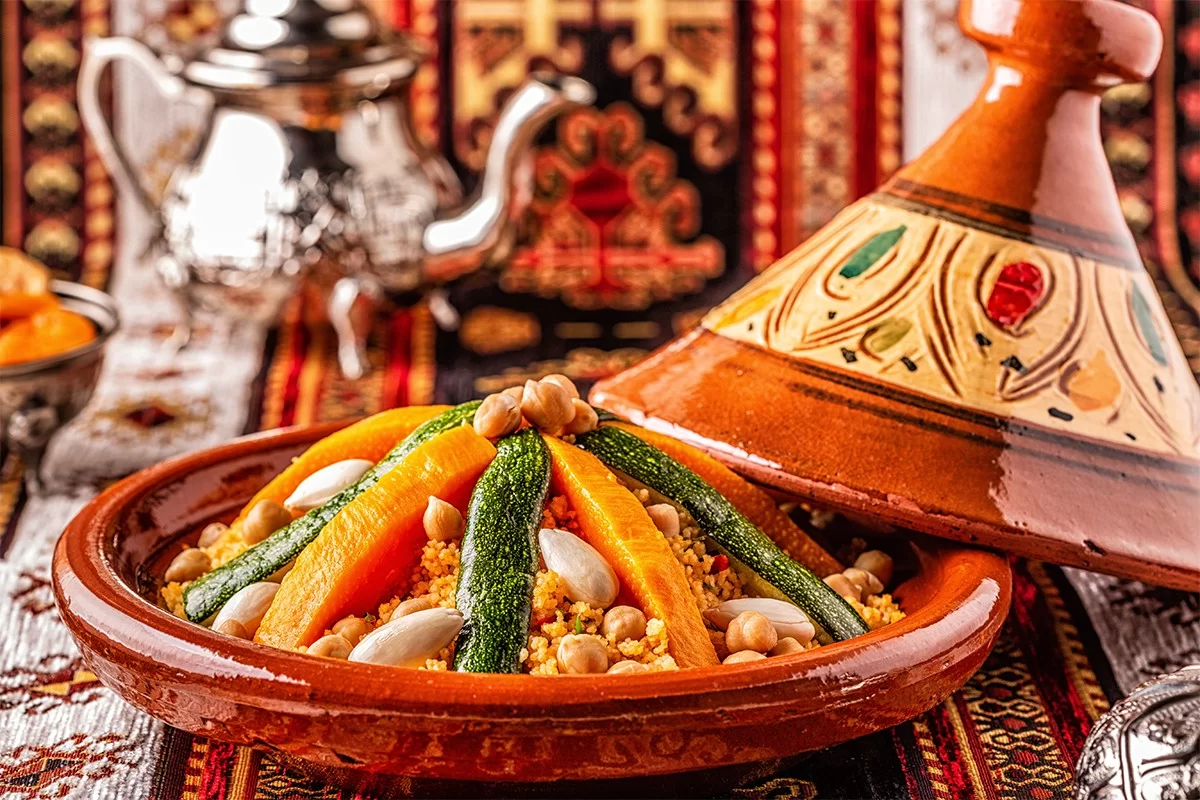
The Flavors of Morocco: A Journey Through Traditional Moroccan Cuisine
Exploring Spice Trails and Culinary Secrets from Marrakech to Fez

Introduction to Moroccan Cuisine
Morocco is a land of rich history, vibrant culture, and, most importantly, an incredible culinary heritage. From the bustling souks of Marrakech to the royal kitchens of Fez, Moroccan cuisine is a celebration of flavors, aromas, and textures. This journey through traditional Moroccan cuisine will uncover the secrets behind its distinctive dishes, legendary spices, and time-honored cooking techniques.
The Essential Spices of Morocco
At the heart of Moroccan cooking lies an exquisite blend of spices. These spices are not just ingredients; they are the essence of Moroccan flavors.
- Ras el Hanout: A complex spice mix that can contain up to 30 ingredients, including cinnamon, cumin, turmeric, and cardamom.
- Cumin: A staple in Moroccan dishes, adding depth and warmth.
- Ginger: Used in both savory and sweet dishes to enhance flavor.
- Saffron: One of the most luxurious spices, lending a golden hue to dishes like tagine and couscous.
- Preserved Lemon: Though not a spice, it is a signature ingredient that gives Moroccan cuisine its unique tang.
Signature Moroccan Dishes
Tagine: The Iconic Slow-Cooked Stew
Named after the traditional earthenware pot in which it is cooked, tagine is a slow-cooked stew that combines meat, vegetables, dried fruits, and a medley of spices. Some of the most popular variations include:
- Lamb and Prune Tagine: A sweet and savory dish enriched with cinnamon and almonds.
- Chicken and Preserved Lemon Tagine: A fragrant combination of citrus, olives, and aromatic spices.
Couscous: The National Dish
Traditionally served on Fridays, couscous is a staple in Moroccan households. This dish consists of steamed semolina grains topped with a flavorful broth of vegetables, chickpeas, and meat.
Pastilla: A Royal Delight
A unique blend of sweet and savory flavors, pastilla is a flaky pastry filled with spiced pigeon or chicken, almonds, and cinnamon, dusted with powdered sugar.
Harira: The Comforting Soup
Harira is a hearty tomato-based soup made with lentils, chickpeas, and fragrant spices. It is commonly enjoyed during Ramadan to break the fast.
Traditional Moroccan Beverages
Moroccan Mint Tea
Known as “Moroccan whiskey,” mint tea is a staple in Moroccan hospitality. Made with green tea, fresh mint, and generous amounts of sugar, this refreshing drink is enjoyed throughout the day.
Almond Milk & Avocado Smoothies
Rich and nutritious, Moroccan smoothies often feature a blend of almonds, avocado, dates, and milk, offering a delightful treat on hot days.
Conclusion
Moroccan cuisine is a feast for the senses, deeply rooted in tradition and history. Whether you’re indulging in a fragrant tagine, sipping on mint tea, or savoring the crunch of pastilla, every bite tells a story of Morocco’s rich cultural heritage. To truly experience the flavors of Morocco, one must not only taste the food but also embrace the warmth and hospitality that come with it.
